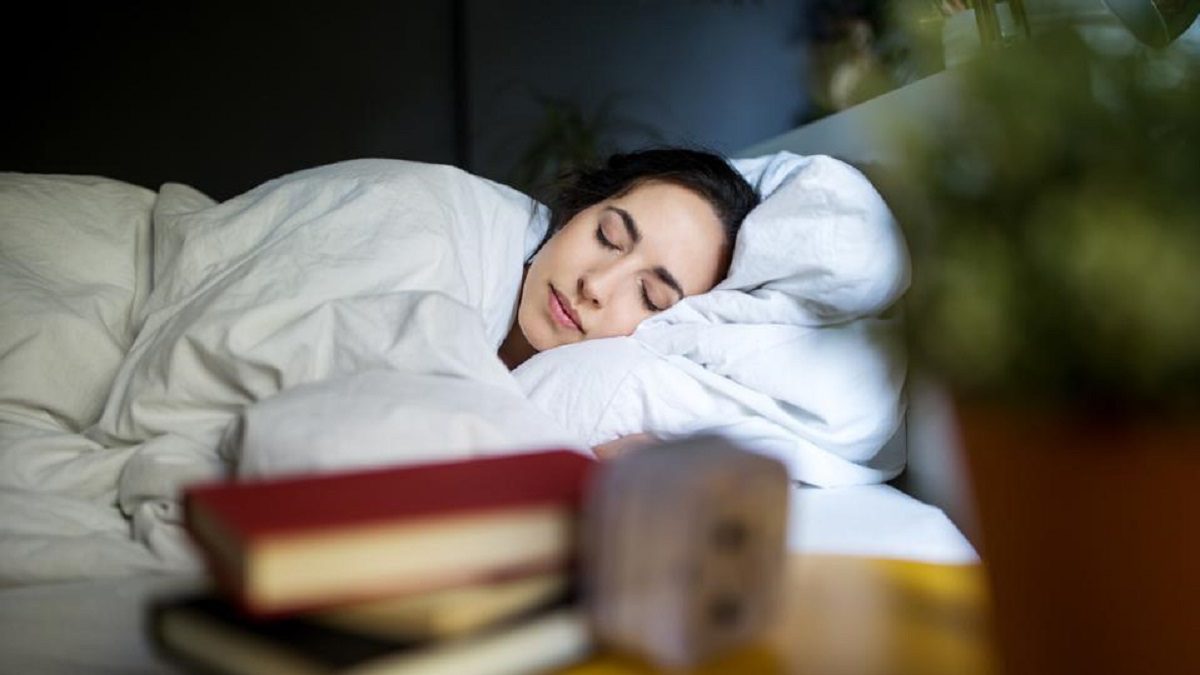
20 Tips On How To Fall Asleep Fast
There are many reasons why insomnia is a common sleep disorder, and it can be hard to figure out how you fall asleep. Some people with this issue, in particular, have trouble staying awake past their usual bedtime because they’re constantly thinking about what will happen when finally get into unconsciousness- if only for just one night. So how can you stop this domino effect to successfully catch some sleep? Here are 2o tips on how to fall asleep fast.
1. Try The Military Method
The military method is an exercise that teaches you how to relax, breathe deeply and think about your mental images. Here’s how to fall asleep fast with the military method.
- Sit or lay down on your bed, slowly relaxing the muscles in your body.
- Beginning with your face, tense your muscles then allow them to loosen naturally. Begin to take deep, calming breaths.
- Repeat this process until your entire body feels completely at ease.
- Push all thoughts from your head for 10 seconds. When your brain feels clear, picture one of the following scenarios:
- Peacefully lying in a canoe on a calm lake
- Gently rocking back and forth in a completely dark room
- If the above is unsuccessful, mentally repeat “don’t think, don’t think, don’t think” for at least 10 seconds, and try again.
2. Use The 4-7-8 Method
The 4-7-8 method is a traditional yoga technique that can help ease anxiety and lull you into a state of calm. In this process, one focuses on counting to distract themselves from feelings such as worry or stress by focusing solely on their breathing while also trying not to think too much about what’s going wrong in life at the moment; it creates space for other thoughts which may lead them away from those dark mood swings we all know so well.
- While laying down in bed, allow your tongue to relax behind your front teeth, resting on the roof of your mouth.
- Slowly exhale all of your breath through your mouth, completely emptying your lungs.
- Breath in through your nose for 4 seconds, hold your breath for 7 seconds, then exhale for 8 seconds.
- Repeat this process at least four times.
3. Try to Stay Awake
It sounds counterintuitive, but if you’re anxious about trying to fall asleep then it might be helpful for your brain and body both if instead of going straight into bed after dinner try staying up a little bit. Your mind needs some time off too; letting go of worry will help recharge its batteries so that when we wake up tomorrow morning there’s no need at all to feel refreshed.
4. Turn Down Your Tech
With the prevalence of modern technology, it is more common than ever to surf online before bed. While this can be tough sometimes and hard work turning off your tech altogether for some people who need help with their sleeping schedules; looking at screens late at night may have negative effects on quality rest due in part because they emit blue light which simulates daylight — something helpful only when dawn approaches but not while you’re trying to fall asleep.
Turn down your tech an hour before bed to get ready for sleep. Listeners can listen to music, podcasts, or audiobooks while getting dressed in order to find themselves more relaxed when it’s time to head under covers.
5. Don’t Worry If You Don’t Fall Asleep Instantly
There is a way to fall asleep in five minutes, but it’s not always easy. Try winding down an hour before bedtime with dim lights and relaxing your body by moving slowly into relaxation mode for 30 minutes or so—this will help set up the perfect environment that you need when trying desperately hard things like sleeping.
6. Try Autogenic Training
With autogenic training, you can fall asleep fast by using a series of statements that will calm your system. This relaxation method was created for people who have trouble sleeping and is based on the principles behind hypnosis.
- Lay down and bring focus to your breath, saying to yourself, “I am completely calm.”
- Bring your focus to your arms and repeat to yourself, “My arms are very heavy,” then, “I am completely calm,” at least six times.
- Move your focus to your legs and repeat to yourself, “My legs are very heavy,” then, “I am completely calm,” at least six times.
- Move around to different parts of your body, such as your abdomen, forehead, and heart, repeating the above phrases at least six times.
- Once you feel relaxed, begin to shift your attention to your entire body, where you should then feel relaxed and warm.
- Repeat the above steps until you’re ready, at which point you can open your eyes (if you haven’t yet fallen asleep) and enjoy the state of calm.
7. Do a Body Scan
Check in with yourself before bed to promote better sleep. A body scan is a quick check that you can do by bringing awareness and intentionality towards each part of your being, starting from the top down: face then chest area (heart), arms up overhead letting them fall back onto a pillow while continuing on down below until reaching legs or feet if applicable; repeat three times total for ultimate relaxation effect.
With the body scan, you start at your feet and work up until satisfied with how relaxed they feel. It takes about 20 minutes for this process to complete throughout all parts of one’s own physical self-severing it into ten different areas or “trains” if needed.
- Lay down in a relaxed and comfortable position.
- Beginning with your head, focus on one section of your body until it feels completely relaxed.
- Move down to your shoulders, allowing them to relax before progressing down the right side of your body.
- Once your right side feels relaxed, begin focusing on the left side of your body.
- After 10 to 20 minutes, check-in with your body to see if you feel completely relaxed.
8. Take A Warm Bath or Shower
Next time you have a long day ahead of work or school, take some extra minutes to relax with an invigorating hot bath. Accordion your favorite songs and immerse yourself in the soothing water for ultimate relaxation before climbing back into bed — it’ll help promote faster sleep.
9. Do Progressive Muscle Relaxation
Progressive muscle relaxation is just like body scanning, but instead of focusing on one area at the time and then moving to another section or your whole body for the final release point; you tense different muscles groups in sequence. This way each group gets worked out separately before letting them go completely relaxed.
- Raise your eyebrows to tighten your forehead muscles, then allow them to relax, focusing on the release of tension from the temples.
- Squeeze your eyes shut, then allow them to relax, focusing on how your eyelids fall over your eyes.
- Smile to feel the tension in your cheeks and jaw, then allow them to relax, focusing on how each muscle interacts within your face.
- Repeat this process through the rest of your body, moving through muscle groups in the shoulders, arms, abdomen, and legs, before finishing at your feet.
- Lay in this relaxed position until you doze off to sleep.
10. Meditate Before Bed
Mindfulness is an essential part of sleep meditation. Clear your mind before bed by Meditating. Sleep should be enjoyed for its own sake, not just because it helps with insomnia or other sleeping problems- but also so you can wake up feeling refreshed and ready to take on the day ahead instead of dragging yourself out from under covers at night only to start stressing all over again soon after getting back awake during morning hours while others are still asleep nearby (and then wanting them gone).
- Sit or lie down in a comfortable position.
- Close your eyes, slow your breathing, and focus on deeply inhaling and exhaling.
- Clear your mind of thoughts. If you feel thoughts intruding, push them away by refocusing your breathing.
- Start with as little as five minutes of meditation, working your way up to longer periods as it feels comfortable.
11. Practice Imagery
Imagery is a mental exercise where you picture peaceful and happy scenes from your past to help relax before bed. This imagery will engage the brain, focus attention on one chosen image in order for relaxation that way it’s easier than ever before.
12. Avoid Caffeine Up to Six Hours Prior
While caffeine may be the MVP for getting you out of bed, it’s also a major culprit in keeping us from falling asleep. So how long before bedtime should one avoid their daily cup o’ joe?
The research shows that this ingredient can impact our quality 6 hours before headboard time- so if someone typically goes to sleep around 10 pm then they would need to stop drinking caffeinated beverages by 4 pm. To satisfy your cravings for coffee before bed, opt to drink a decaffeinated beverage like calming chamomile or lavender tea. You’ll still get the benefits without sacrificing sleep.
13. Create a Bedtime Routine
Your bedtime routine can help you set an internal body clock so that when the time comes, your brain knows to wind down. You might do something as simple and straightforward with pre-bed playlists or take nightly baths – all it takes is one little thing in place every day for weeks on end until they become ingrained into everyday life routines.
A simple nightly ritual can make all the difference in your body’s maintenance. Your bedtime routine should be catered to what works best for you, but there is no one specific way that works across everyone.
14. Keep the Thermostat Low
The ideal temperature for sleep is between 60 and 67 degrees Fahrenheit. And while you might feel too cold at night during the day, your internal body temperature drops as an indicator that it’s time to go into slumber- meaning a cooler room will provide better quality rest.
15. Dim the Lights With a Glow Light
Using the right kind of lighting can help you relax and turn in for bed. Blue light, like that from LCD screens or computer monitors, is great at keeping us alert but yellow-toned ambient lights might have a different effect – they signal to our bodies it’s time we start turning off.
A dimming lamp with warm illumination will offer just enough light without stimulating retinae endings which make those crucial night vision adjustments needed before sleep time.
16. Do Yoga Before Bed
Whether you’re looking for a quick fix or something more intense, there’s no better way to wind down than with some calming yoga. Studies have shown that this type of exercise helps people suffering from insomnia improve their sleep quality by helping them fall asleep faster and stay asleep longer.
Yoga combines the physical, mental and spiritual benefits of exercise. It can help you relax your body by encouraging deep breathing which leads to muscle relaxation (and less stress). Next time insomnia gets tough – try spending some time in a child’s pose or happy baby before bedtime; this will make it easier for yourself to fall asleep quickly.
17. Put Socks On
When you get cold feet, it can be difficult to fall asleep. To help combat this problem and other insomniac woes like insomnia or trouble concentrating on work tasks at school/workplace; try putting on socks before bedtime. Research has shown that by adjusting your body temperature (warmer temperatures make us feel sleepy), blood vessels will dilate which sends signals through our brain telling us it’s time for sweet dreams.
18. Take a Walk
If you can’t stay still at night, try taking a walk. While it may sound counterintuitive to get up and move around in your own home after being laid flat on the couch or bed all day long – this will actually help reset the brain so that when darkness settles over again (and there’s no more television), sleep comes much easier than before.
If you’re still having trouble falling asleep after 20 minutes, try doing a quick reset. Just take it easy and keep your nighttime stroll under five or ten minutes long so as not to do anything jarring like turn on bright lights or loud sounds.
19. Use a Weighted Blanket
Weighted blankets have been used for centuries as a form of therapy to help people with depression and anxiety. They provide deep pressure, which creates calmness in the body by stimulating circulation that returns serotonin levels back up into your brain just like natural sunlight does on earth. The best part is you don’t need an extra-large weighted blanket because even 10% weight will do. Whether you use a weighted blanket during your pre-bedtime ritual or throughout the night, your body will surely thank you for it.
20. Turn off the Clock
When you can’t sleep at night, looking at your clock will give added stress to the situation. Try turning off or moving it away from where you’re sleeping and see if that helps with any restlessness issues! Additionally don’t leave devices face down next to beds because they may be tempting for people who want to check what time it is before going back into bed themselves etc.
Set Yourself Up For Success
You know that feeling when you can’t sleep, and it feels like all the tension in your body is finally catching up with each other? Yeah…we don’t want any part of this. But there are ways to get some restful slumber even if anxiety has become an issue – start by softening up those bed sheets for a better nights’ dream with mattress protectors or invest in new pillows.
I hope these tips help make sure tomorrow morning starts off on the right foot.




